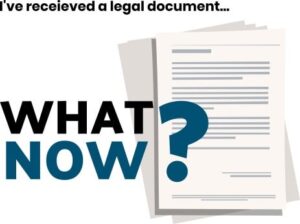Defective new cars
When there is a fault in a new vehicle, the buyer has remedies available under the vehicle manufacturer’s warranty, as well as the protection of guarantees and standards found in the ACL.
Manufacturer’s warranty
A manufacturer’s warranty applies for a specific period of time from purchase and can range from, for example, three years or 100,000 kilometres of coverage, up to seven years or unlimited kilometres. The warranty typically covers mechanical failures which result from faults or defects in the vehicle’s design or parts, limiting coverage to safety, reliability, and roadworthiness issues.
A manufacturer’s warranty usually allows the vehicle buyer to choose a repairer as long as the repairer meets the manufacturer’s standards for maintenance and servicing. However, some warranties require the buyer to have the car repaired and/or serviced through the manufacturer’s dealer network. A manufacturer may void a warranty if work is carried out by a non-approved repairer, if the vehicle’s scheduled servicing is not carried out, or if a non-genuine part has failed or caused damage.
If a vehicle is sold on, any remaining warranty period automatically transfers to the new owner.
Extended warranties
An extended warranty is similar to an insurance policy (with an excess payable and claim limits) and may contain terms and conditions for vehicle use, repair and servicing. Such a warranty will generally come as an added cost at the time of a vehicle sale.
Generally, when a vehicle is sold on, any remaining extended warranty is not transferred.
The Australian Consumer Law
Schedule 2 to the Competition and Consumer Act 2010 (Cth) sets out the ACL, which ensures that goods and services come with guarantees of quality and safety and provides remedies for consumers when these guarantees are not met.
The ACL defines a consumer as someone who acquires goods or services “of a kind ordinarily acquired for personal, business or household use or consumption”. If the acquired goods or services are not of that kind, a person may still be considered consumer if the goods or services were priced less than $100,000.
Sale of goods
The vehicle must be of “acceptable quality”, which means that it must be:
- fit for all the purposes for which vehicles of that kind are commonly supplied;
- acceptable in looks and finish;
- free from defects;
- safe; and
- durable.
The vehicle must also:
- match all descriptions (for example, in advertising and on packaging);
- come with full ownership and undisturbed possession;
- not carry hidden debts or fees;
- have any extra promises met (such as lifetime warranties); and
- have spare parts and repair sites reasonably available (unless a consumer is told otherwise).
Guarantees do not apply to the vehicle if the buyer, for example:
- received what the vehicle that they requested but changed their mind, found it cheaper elsewhere, or had no use for it;
- misused the vehicle and caused a failure;
- knew of a failure in the vehicle before they bought it; or
- requested a service be done in a manner against the advice of the manufacturer.
Remedies
If a guarantee is not met, the type of remedy available to the buyer will depend on whether the failure of the vehicle is considered to be major or minor. A major failure is when:
- the consumer would not have bought the vehicle had they known about the failure;
- the vehicle is significantly different from its description;
- the vehicle is not fit for purpose (and cannot be easily made to be fit for purpose within a reasonable timeframe);
- the vehicle is does not do what the consumer wanted it to when they purchased it, or it does not meet the consumer’s specific purpose (and this cannot easily be fixed within a reasonable timeframe); or
- the use of the vehicle is unsafe or creates an unsafe situation.
If there is a major failure, a consumer has the right to, among other things, a replacement or refund. A replacement vehicle must be identical to the original supplied, and a refund should be of the amount paid (and in the form it was paid).
If there is a minor failure, a business may offer a repair instead of a replacement or refund.
If a person suffers loss or damage due to a breach of a guarantee, the person is entitled to claim compensation. Likewise, if a person is injured due to a breach of a guarantee, they are entitled to seek compensation.
Safety standards
The ACL also contains a range of safety safeguards for consumers. These include:
- the making of mandatory standards for vehicle safety;
- bans on providing vehicles that present a safety risk;
- recalls on vehicles that present a safety risk;
- rights to recourse if a vehicle is unsafe; and
- mandatory safety reporting.
Defective used vehicles
When there is a fault in a second-hand vehicle, the buyer may have remedies available under a statutory warranty, as well as the protection of guarantees and standards found in the ACL.
From a licensed dealer
A buyer may be entitled to a “class A” or “class B” statutory warranty under the Motor Dealers and Chattel Auctioneers Act 2014 (Qld).
A class A warranty applies when the vehicle is less than 10 years old and has an odometer reading of less than 160,000 kilometres. The warranty expires either after three months or once the vehicle has travelled 5000 kilometres (since the purchase), whichever occurs first.
A class B warranty applies if the vehicle is more than 10 years old or has an odometer reading of more than 160,000 kilometres. The warranty expires either after one month or once the vehicle has travelled 1000 kilometres (since the purchase), whichever occurs first.
The warranties do not apply to some vehicles, such as motorcycles and commercial vehicles, and they do not cover defects in certain components such as tyres, batteries, and airbags.
From a private seller
Extra caution should be exercised when purchasing a used vehicle privately. This is because the usual consumer guarantees do not apply to private sellers and a buyer should factor in not being entitled to, for example, a cooling-off period, certain warranties, a Personal Property Securities Register certificate (PPSR certificate) or access to compensation through the Office of Fair Trading.
To be additionally cautious, a buyer can take actions such as ensuring that:
- the car is not stolen (this should show up in a PPSR certificate);
- the car has a current safety certificate;
- there is no money owing on the car (this can be checked by obtaining a PPSR certificate); and
- they get an independent vehicle inspection from a qualified person.
The buyer should also check the registration certificate to verify that it matches the vehicle.
At an auction
A statutory warranty applies to certain vehicles purchased at auction, and the auctioneer must announce whether or not a vehicle has a statutory warranty before commencing the auction. The vehicle must be sold unencumbered and have a safety certificate. If a buyer suffers a financial loss because of the actions of an auctioneer or an auctioneer’s employee, they may be entitled to make a claim for compensation from the Office of Fair Trading.
Buying online
Different rules apply depending on whether the vehicle is being bought online from a dealer or a private seller, and where the vehicle is located. A vehicle bought from another State or a Territory is covered by the ACL but not by laws that regulate the motor vehicle industry in Queensland. Buyers should also be cautious about purchasing a vehicle from overseas, as they may not be covered by the ACL and could face difficulties accessing repairs, replacements or refunds.
How Gibbs Wright Litigation Lawyers can help
If you are involved in a dispute over the purchase or sale of a new or second-hand vehicle with a purchase price exceeding $20,000, call us today to discuss your matter. We offer a free and confidential, no-obligation consultation to discuss your options.





